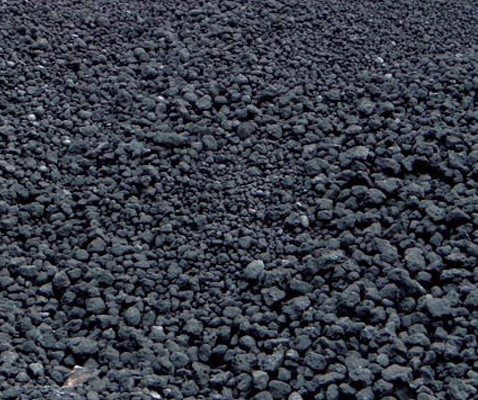
Calcined petroleum coke is a byproduct of the crude oil refining process. It has a variety of uses, including fuel and an ingredient in the production of aluminum. This article looks at some of these uses. Let's take a look at some of the most common applications.
Calcined petroleum coke is a carbonaceous solid that is a by-product of crude oil refinery processes. It is used in metallurgical processes and as a base fuel for cement kilns. It is also used in the steel industry as an electrode. Its high sulfur content makes it cheaper than coke used in carbon anodes.
It is processed into two types: fuel grade and anode grade coke. The fuel grade coke contains more sulfur than the anode grade coke. Raw coke that comes out of the coker is referred to as green coke. In the process of refinement, the sulfur content of the coke is reduced through a desulfurization process. It is then processed in an anode baking oven to acquire the required shape and physical properties. The coke is then used in the steel and aluminum industries.
Petcoke is an important by-product of crude oil refining. It is made up of carbon and impurities like residual hydrocarbons, elemental forms of nitrogen, sulfur, and nickel. The impurities are captured within the coke matrix.

Calcined petroleum coke is a fuel that is obtained through the burning of petroleum. The process is environmentally friendly and produces clean, low-sulfur, low-nitrogen fuel. It is widely used in automobiles, ships, and other industrial processes. However, some petroleum cokes have undesirable properties, such as high levels of nickel and vanadium. Typical analyses of fuel-grade petroleum cokes are shown in Table 1.12.
While petroleum coke can be used to replace coal, it is more effective to co-fire it with oil. The ash content is low, and the oil in the slurry provides the necessary volatile matter to ignite the fuel. Petroleum coke is a good alternative for heavy oil, but its high concentration of Ni and V makes it unsuitable for use in boilers that require high-volatile carbon bituminous coal.
Petroleum coke is a by-product produced from the refining of crude oil, especially in Canada. Depending on the form, petcoke can be used for steel making or other special purposes. It is sometimes a waste product and is stored in large quantities. It can be burned to generate electricity or heat, but is less desirable than coal due to environmental concerns. Fortunately, petcoke can be converted into liquid fuels for a variety of uses.
Calcined petroleum coke (CPC) is an ingredient used in the production of aluminum. It is produced from petroleum by coker units in refineries. This process breaks up residual fuel oil that was once used to make gasoline and diesel. It is an important ingredient in the production of aluminum because it is the only commercial source of materials used for electrolytic anodes. If petcoke is unavailable, aluminum production could suffer.
Calcined petroleum coke is produced by heating raw petroleum coke to high temperatures (between 1200 and 1350 degrees Celsius). This process removes the moisture from the coke, and removes any hydrocarbons that are still present. It also changes the crystalline structure of the coke to make it denser. It is then transported to silos where it is stored.
Calcined petroleum coke has a sponge-like structure, which lets a small amount of the binding material pass through the coke particles. This material conducts electricity into the aluminium smelting pots. This process consumes up to 40 tons of calcined petroleum coke for every 100 tonnes of aluminium produced. Because there is no commercially viable substitute for calcined petroleum coke, the production of aluminum cannot be completed without it.

Write a Message